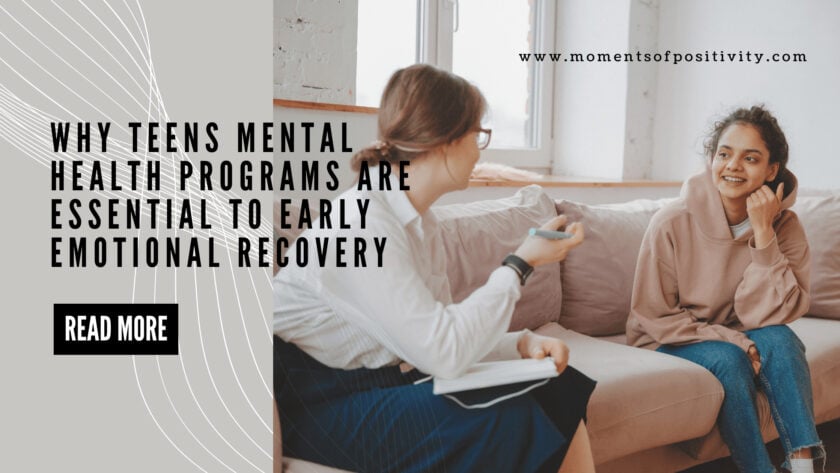Share this
Emotional and behavioral health challenges are becoming more common among adolescents, and the need for focused intervention is clearer than ever. Teens mental health programs offer structured, personalized care designed to meet the developmental needs of young people. These programs provide support for conditions such as anxiety, depression, trauma and mood instability, helping teens build resilience and restore emotional balance.
By offering flexibility, evidence-based care and family involvement, teens mental health programs are helping shape healthier futures for a new generation.
What Teens Mental Health Programs Include
Teens mental health programs span a range of care levels, including outpatient therapy, Intensive Outpatient Programs (IOPs), Partial Hospitalization Programs (PHPs) and residential treatment. These options ensure that care can be matched to the severity of each teen’s condition.
Most teens mental health programs offer individual therapy, group counseling, family involvement and psychiatric services. They also often include educational support, mindfulness strategies or creative therapies to help teens manage stress in ways that feel comfortable and empowering.
Personalization That Supports Real Growth
Every teen entering one of these programs begins with a detailed assessment. This includes evaluating emotional symptoms, school functioning and family dynamics. From there, a personalized plan is built to guide care.
Teens mental health programs use these individualized plans to stay focused and adaptive. Plans are regularly reviewed and adjusted based on the teen’s progress, making the experience more responsive and relevant.
Engaging Families in the Process
Family involvement is a cornerstone of most teens mental health programs. Caregivers often participate in therapy sessions, parenting workshops or guided communication exercises. This helps reinforce treatment strategies and ensures that positive changes are supported at home.
When families are involved, teens typically show stronger progress. Teens mental health programs that prioritize family collaboration often experience better long-term outcomes for the entire household.
Beyond Talk Therapy: Whole-Person Support
Many teens mental health programs incorporate holistic methods alongside traditional therapy. These include art and music therapy, mindfulness training, physical activity and nutrition education. These tools help teens express themselves in different ways and learn new strategies for coping with emotional stress.
This whole-person approach allows teens mental health programs to offer a well-rounded experience that addresses more than just symptoms; it supports emotional growth and healthy habits.
Technology-Driven Flexibility
To meet teens where they are, many programs integrate technology into care. Virtual therapy, app-based tools and digital check-ins make teens mental health programs more accessible, especially for teens in rural areas or those facing scheduling barriers.
These platforms also help maintain continuity during school breaks or life transitions, keeping teens engaged and supported.
Investing in the Future
Teens mental health programs are about more than treatment. They’re about transformation. These programs teach teens how to identify emotions, regulate behavior, and respond to stress in healthier ways.
With early support from teens mental health programs, young people are more likely to succeed academically, socially and emotionally, building a stronger foundation for adulthood.



